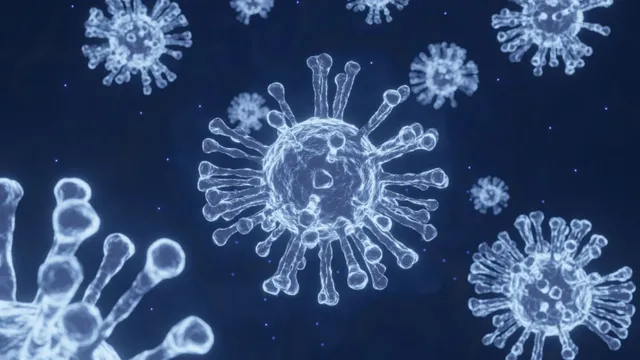- By Priyanka Koul
- Fri, 24 Jan 2025 04:51 PM (IST)
- Source:JND
Guillain-Barre Syndrome: The recent outbreak of a rare neurological disorder called Guillain-Barre Syndrome (GBS) in over 60 individuals in Pune has sparked widespread concern. According to reports from The Indian Express and The Times of India, experts from the Indian Council of Medical Research–National Institute of Virology (ICMR-NIV) have identified norovirus and Campylobacter bacteria in some of the samples collected from the affected individuals.
On Thursday, the Pune health department confirmed the presence of norovirus and Campylobacter jejuni in the samples of 21 symptomatic patients. In response, Divisional Commissioner Dr Chandrakant Pulkundwar conducted a comprehensive review of the treatment protocols and preventive measures being implemented by health authorities in the region.
#पुणे शहर व परिसरात गुलेन बारी सिंड्रोम जीबी या आजाराचे रुग्ण आढळून आल्याच्या पार्श्वभूमीवर विभागीय आयुक्त डॉ.चंद्रकांत पुलकुंडवार यांनी विभागीय व जिल्ह्याच्या सर्व आरोग्य यंत्रणांचा या आजारा संदर्भात करण्यात येणाऱ्या उपचार व उपाययोजनांचा सविस्तर आढावा घेतला.@MahaHealthIEC pic.twitter.com/mbgjl4HalG
— DIVISIONAL INFORMATION OFFICE, PUNE (@InfoDivPune) January 22, 2025
The State Rapid Response Force has visited the affected areas to collect stool, blood, and water samples for testing. Dr Babita Kamlapurkar, Joint Director of State Health Services, stated that private practitioners have been instructed to immediately report any suspected cases. She assured that the health department is well-prepared with preventive measures while speaking with India Today.
Connection Between Norovirus, Campylobacter, and GBS
Norovirus and Campylobacter jejuni, as detected by the National Institute of Virology, are known to cause symptoms such as nausea, vomiting, and diarrhoea. These symptoms were reported in all the affected patients before they developed full-blown GBS.
"Campylobacter jejuni and norovirus are the two prominent organisms identified in the samples," confirmed Dr Kamlapurkar. Contaminated water is suspected to be a potential trigger for the infections leading to GBS symptoms.
What Is Guillain-Barre Syndrome (GBS)?
GBS is a rare neurological disorder in which the body’s immune system mistakenly attacks the nerves. This damage results in muscle weakness and, in severe cases, paralysis. Although the exact cause of GBS is not fully understood, it is often preceded by infections with viruses or bacteria.
According to the Centers for Disease Control and Prevention (CDC), most people recover from GBS completely, but some may experience permanent nerve damage.
Symptoms of GBS
The initial symptoms of GBS include:
- Weakness and tingling sensations, typically starting in the legs.
- Symptoms can spread to the arms and upper body over hours, days, or weeks.
In severe cases, the weakness progresses to the point where the patient cannot use certain muscles, potentially leading to paralysis.
Causes of GBS
Campylobacter infection: One of the most common causes of GBS, particularly in the United States.
- Approximately 1 in every 1,000 individuals with a Campylobacter infection develops GBS.
- Studies suggest that 1 in 20 to 8 in 20 people with GBS had a recent Campylobacter infection.
- Diarrhoea or respiratory illness: Around 2 in 3 individuals with GBS experienced these conditions beforehand.
- Viral infections: GBS has been linked to infections such as the flu, cytomegalovirus, Epstein-Barr virus, and Zika virus.
- Vaccinations: In rare instances, GBS has developed following certain vaccinations.
Treatment for GBS:
- Intravenous immunoglobulin (IVIG) or plasma exchange, which help reduce the immune system’s attack on the nerves.
- In severe cases, ventilatory support may be necessary.
While there is no direct cure for GBS, many patients respond well to treatment. Recovery times vary widely, ranging from a few weeks to several years.

